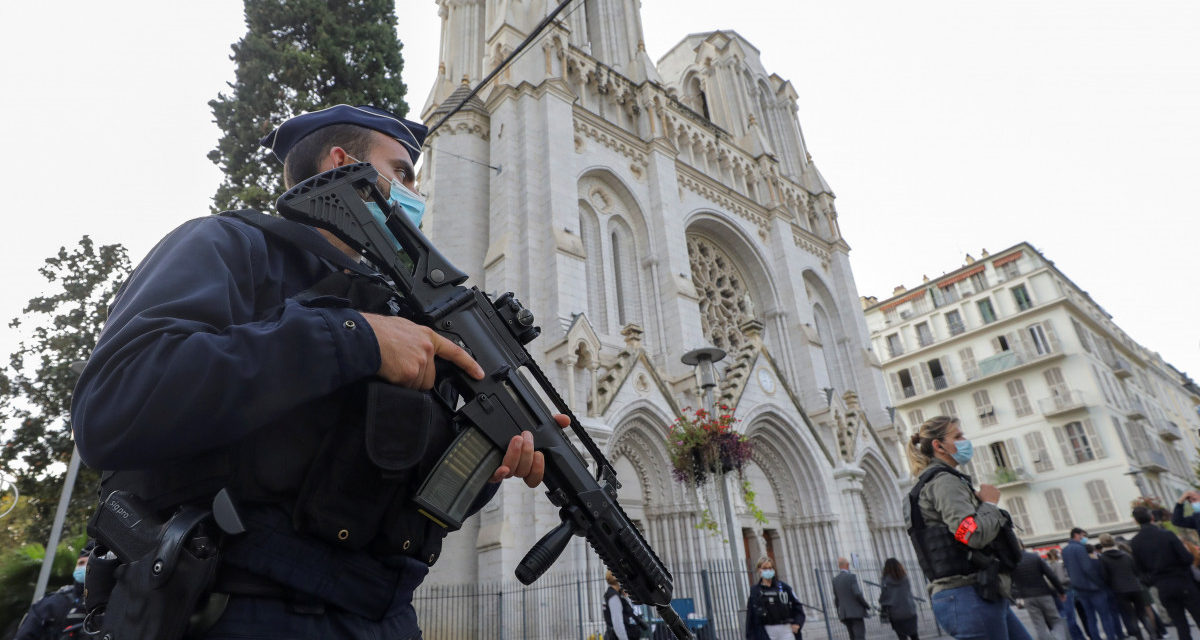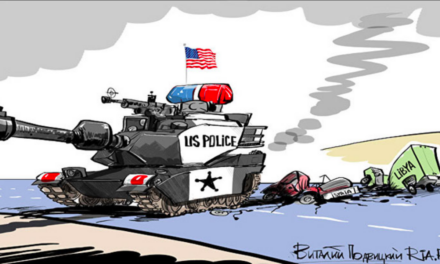Almost 21 years ago, on December 14, 2001, the German Bundestag adopted the Anti-Terrorism Act (TBG). In response to the terrorist attacks in New York and Washington on September 11, 2001, the so-called Security Package II. its aim is to adapt the existing security laws to the threats posed by international terrorism.
The extensive package of measures envisages a number of amendments to the law on the Federal Office for the Protection of the Constitution, the Military Intelligence Service, the Federal Intelligence Service, the Federal Border Police and the Federal Criminal Police. In essence, it regulates the expanded powers of security authorities and the improvement of data exchange, the prevention of the entry of terrorist criminals, identity security measures in the visa process, the improvement of border control, the increased control of security-sensitive activities, the biometric features of passports and identity cards. , restrictions on the associations of extremist foreigners, Dragnets, the use of firearms only by police on civilian aircraft and ensuring the energy supply.
The EU's fight against terrorism: a group and two individuals have been added to the EU's sanctions list
The Council decided to expand the list of those subject to restrictive measures by one group and two individuals, namely ISIL/Da'esh and Al-Qaeda and their affiliates. The measures target Hurras al-Din, its leader, Faruk al-Suri, and his religious leader, Sami al-Aridi, who is affiliated with al-Qaeda in Syria.
Hurras al-Din operates in the name and under the auspices of al-Qaeda and has been involved in planning external terrorist operations. To achieve its goals, the group has established operational camps in Syria that provide terrorist training for its members. Since the group's creation, several European foreign terrorist fighters have joined.
The sanctioned group and its associated individuals also played a key role in promoting Al-Qaeda's violent jihadist ideology and inciting terrorist acts in support of Al-Qaeda through propaganda activities. Hurras al-Din and its two leaders therefore pose a serious and ongoing threat to the EU and to regional and international stability.
With these new measures, a total of ten persons are now subject to an entry ban and asset freeze, and three groups are subject to asset freeze only. In addition, EU persons and entities will be prohibited from providing funds or economic resources to persons and groups on the list.
Today's decision reinforces the EU's unwavering determination to combat the persistent terrorist threat posed by Al-Qaeda, ISIL/Daesh and all their regional affiliates. The EU remains committed to taking decisive action against those who continue to threaten international peace and security by planning, financing and perpetrating terrorist attacks and spreading their deadly terrorist propaganda around the world.
As of September 2016, the EU can independently apply sanctions against ISIL/Daesh and Al-Qaeda, as well as individuals and organizations associated with or supporting them. Until then, sanctions could only be applied against persons and organizations acting separately from the UN and EU member states.
Meanwhile, the Bidens relax: the United States has removed 5 groups from the terrorism "blacklist"
The United States has removed five believed-to-be-defunct extremist groups from its list of foreign terrorist organizations, ABC reported earlier. In documents published in the Federal Register on Friday, the State Department said it removed the groups following a mandatory five-year review. Al-Qaeda has also come under review on the list created under the federal Immigration and Nationality Act, or INA.
"During our review of the five FTO designations, we determined that the five organizations no longer engage in terrorism or terrorist activities as defined by the INA," the State Department said in a statement. “Therefore, in accordance with the INA, these FTO designations are revoked.”
Several of the removed groups have long been a major threat, killing hundreds if not thousands of people in Asia, Europe, and the Middle East. The decision is politically sensitive for the Biden administration and the countries where the organizations involved operated, and may draw strong criticism from the victims and their families.
The organizations involved include the Basque separatist group ETA, the Aum Shinrikyojapán cult, the radical Jewish group Kahane Kach, and two Islamic groups active in Israel, the Palestinian territories, and Egypt.
"These actions are intended to reflect the United States' determination to comply with legal requirements to review and revoke FTO designations when the facts warrant such action." - announced the Ministry of Foreign Affairs. "These withdrawals do not seek to ignore or condone the terrorist acts of certain groups in which they have previously participated, or the harm the organizations have caused to their victims, but rather recognize the success of Egypt, Israel, Japan and Spain in reducing the terrorist threat."
Removing groups from the list will immediately result in the withdrawal of a number of sanctions that came with the designation. These include asset freezes and travel bans, as well as a ban on Americans providing any financial support to the groups or their members. In the past, financial support was broadly defined to include money or in-kind benefits, including medical care in some cases.
All but one of the five groups involved were first considered foreign terrorist organizations in 1997.
The groups removed from the list are detailed as follows:
- Aum Shinrikyo (AUM), the Japanese "Supreme Truth" cult that carried out a deadly sarin gas attack on the Tokyo subway in 1995 that killed 13 people and sickened hundreds. The group has been largely considered defunct since its leaders, including Shoko Asahara, were executed in 2018.
- Basque Fatherland and Liberty, or ETA, waged a separatist campaign in northern Spain and elsewhere that killed more than 800 people and wounded thousands more until a ceasefire was declared in 2010 and disbanded after the arrests.
- Kahane Chai or Kach. The radical Orthodox Jewish group was founded by ultranationalist Israeli Rabbi Meir Kahane in 1971 and led until his assassination in 1990. Members of the group killed, attacked or otherwise threatened and harassed Arabs, Palestinians and Israeli government officials. The organization has been dormant since 2005.
- The Mujahidin Shura Council in the Environs of Jerusalem, an umbrella group of several jihadist organizations based in Gaza, has claimed responsibility for numerous rocket and other attacks on Israel since its founding in 2012.
- Gama'a al-Islamiyya is an Egyptian Sunni Islamist movement that fought to overthrow the government of Egypt in the 1990s. It has carried out hundreds of deadly attacks against police and security forces, as well as tourists.
Overall, it can be stated that the threat of terrorism is present in the EU, only its forms have changed and the use of words by the authorities or the exoneration of terrorist organizations can cause confusion in the assessment and decoding of the problem. Annelies Pauwels, an expert on the subject, points out in one of her studies that the prevention of murders committed by some terrorists with guns, knives, bombs and arson must be strictly prevented in the future.
According to him, terrorism by lone perpetrators is an emerging phenomenon that poses a challenge to Western law enforcement agencies. In the last twenty years, lone perpetrators in Western Europe have most often used firearms, knives, explosives and incendiary devices.
Source: alaptorvenyblog.hu
Cover image: Illustration / Photo: MTI/EPA/Pool/Eric Gaillard












